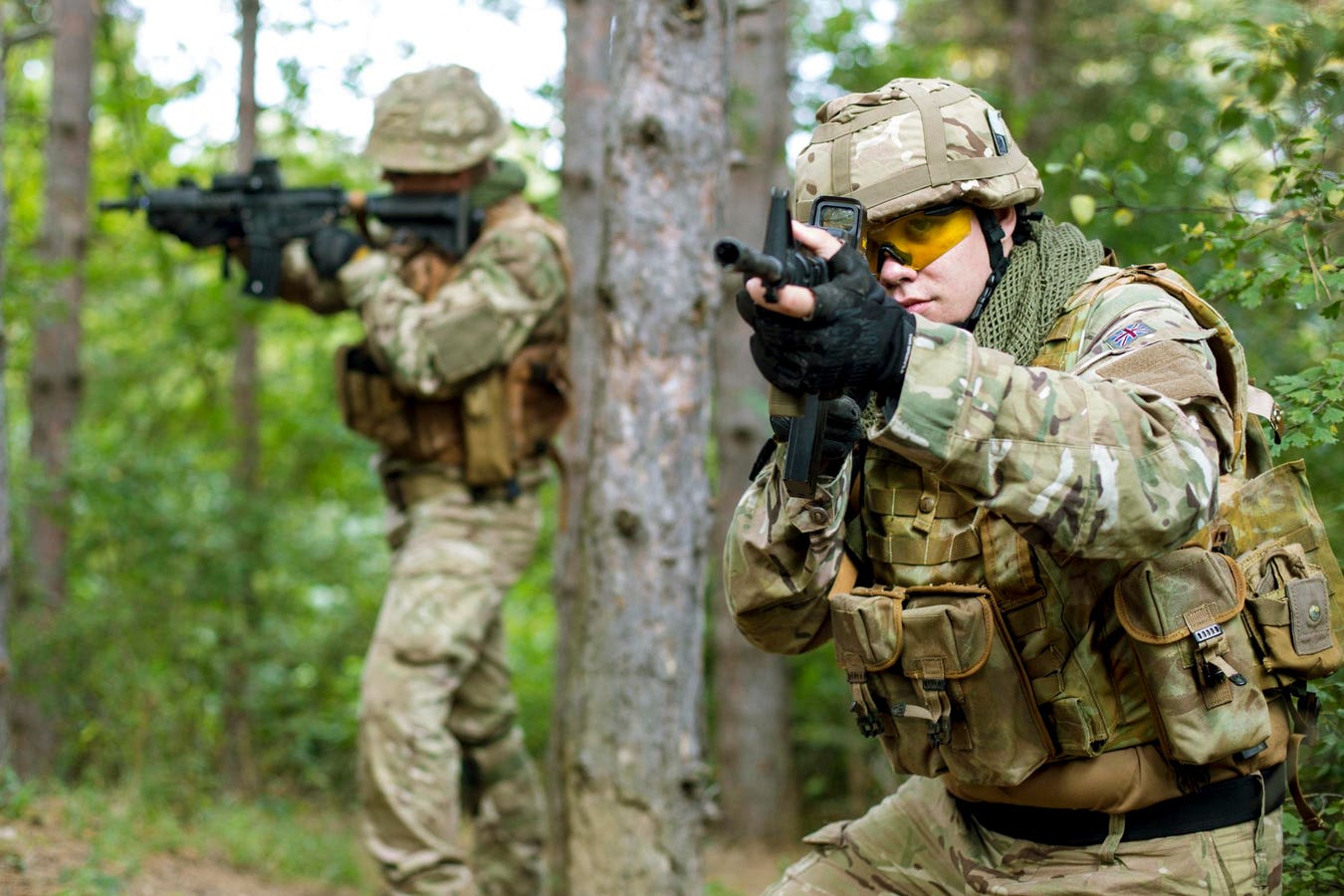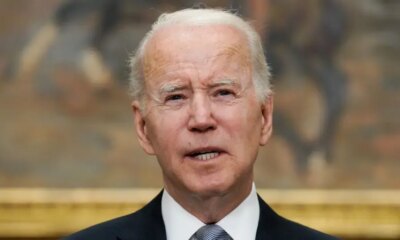Health
The British Army almost turns away a healthy teenager because her relatives had cancer

Military training: armed British soldiers on a mission in the woods.
The British Army is under fire for almost turning away a teenager because she has relatives with breast cancer.
Carys Holmes, 17, was initially told she couldn’t participate because she has an “extensive” family history of the disease. reports the BBC.
The Army has since claimed her denial was a “mistake” and allowed Holmes to proceed with her application.
Holmes’ mother and aunt were both diagnosed with breast cancer, with her aunt tragically dying from the disease. Her mother is currently receiving treatment.
Both had a gene mutation known as BRCA1, which increases the risk of developing cancer, including breast cancer.
Holmes has not been tested for the bug, but according to the BBC there is a 50-50 chance that she also carries the disease.
BRCA1 significantly increases a woman’s risk of developing breast cancer – a risk that also increases with age.
Holmes initially tried to appeal the decision, arguing that her chance of developing breast cancer before age 30 would be about 1.9% with the error, and 0.1% without it.
But this appeal was rejected.
According to research, women who have inherited BRCA1 have a 55-72% chance of developing breast cancer by the age of 70-80. American National Cancer Institute.
Women generally have a 13% chance of developing breast cancer during their lifetime.
“Having this gene does not guarantee she will get breast cancer,” her mother Rachel told the BBC.
“And even if she did have the gene, she can take steps against it.”
Women with an increased genetic risk for breast cancer can take preventative measures to protect themselves from the disease.
About ten years ago, actress Angelina Jolie was famous a preventive double mastectomy because of her cancer risk.
Although Army recruiting literature does not specifically mention breast cancer risk, it does state that applicants may be rejected based on some family-related disorders.
Nevertheless, the Holmes case has sparked outrage in her home country.
A lawyer told the BBC that the decision to reject Holmes was unusual and could have been seen as discriminatory on the grounds of gender.
Men can also get breast cancer, and their risk is also higher if they have the BRCA1 mutation. However, it still remains relatively low: a 2022 study found that the error increased men’s risk to 0.4% by the time they reached age 80. This is a fourfold increase for men overall.
Lawyer Emma Norton from the Center for Military Justice said: ‘For the military to adopt a blanket policy of automatically excluding applications from all women with a history of breast cancer in their family seems wrong on its face. unlawful because it is discriminatory and may even amount to a violation of human rights.”
The army later told Holmes that her application was under review and, after the BBC published her story, that an error had been made and she was still being recruited.
A spokesperson told the newspaper: “Following an investigation into her case, it was concluded that she had been wrongly told she had been rejected as medically unfit.”
They called the rejection “a process error” and added: “Although a candidate may be referred to occupational physicians to have their case assessed, a candidate presenting with the BRCA1 gene would not be routinely rejected from joining the military .’
Holmes, who had already completed her fitness and cognitive tests before she was rejected, will now begin basic Army training in October.













